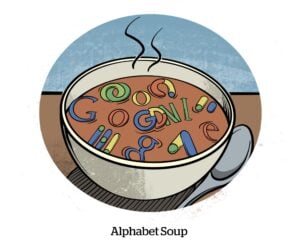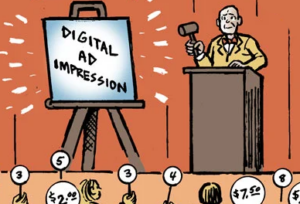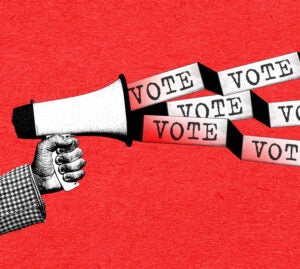Here’s today’s AdExchanger.com news round-up… Want it by email? Sign up here.
All Systems Go
There’s been a back-and-forth swirl of rumors after the TV newsletter Lowpass reported two weeks ago that The Trade Desk was in talks to create a TV operating system and launch with a smart TV or device manufacturer.
Jeff Green denied the rumors.
And now Lowpass is back with another barn burner: The Trade Desk’s first hardware partner will be … Sonos.
“Under the arrangement, The Trade Desk is supplying Sonos with the core smart TV OS, and facilitating deals with app publishers, while Sonos is designing its own hardware, and customizing the user interface,” according to the report.
Why did The Trade Desk and Sonos pick each other? Most hardware manufacturers default to Google, Roku and Amazon because those operating systems already carry every streaming service. Streamers like Netflix, Disney and Peacock aren’t going to ship products for your wannabe new OS.
But The Trade Desk has relationships with those streaming services, too. And Sonos is in a patent lawsuit with Google, and Roku and Amazon sell soundbars that compete with Sono – leading the two smaller companies to pair up, the report says.
Out-of-(Social)-Network
In case you needed it, here’s some more proof that social media can impact your health.
Insurance agents have been using fraudulent social media ads to boost commissions, often by changing the health care plans of low-income Americans without their consent, WSJ reports.
According to a civil lawsuit filed in April representing people affected by these ads, agents from a dozen insurance-marketing and technology companies exploited a post-pandemic regulatory change that allows people near the poverty line to switch to a subsidized health insurance plan at any time during the year.
Facebook and Snapchat ads – some posted as recently as June – promised up to $6,400 in government-funded cash cards. Those who clicked on the ads would be redirected to a registration website and put in touch with insurance agents, who were instructed to switch them over to ACA enrollment regardless of whether it fit the customer’s needs.
Meta and Snapchat have deleted the ads in question. Several of the fraudulent health care switching scam networks in the report are owned by “hustle bro” finance influencers, like Matt Herman (@moneymatt305 on Instagram, now private) and Brandon Bowsky (@bowsky on Instagram).
People First
One might expect that since programmatic is all about tech and automation, the human account operators and product managers wouldn’t exactly matter that much.
But that’s incorrect.
When two direct competitors have a bake-off, for instance, it isn’t one tech against the other; two teams are going after the same goal – just like rowing, which is about the people in the boat, not the boat itself.
Which is why the implosion of Oracle’s advertising and data sales business has led competitors, especially Integral Ad Science and DoubleVerify, to poach employees as part of their play to pick up former Oracle customers, Digiday reports.
“Get the athletes on the bus and then figure out which seats they’re going to sit in,” as IAS CEO Lisa Utzschneider put it.
There is similar precedent. When Sizmek was in a bankruptcy fire sale, competitive DSPs and ad servers speedily recruited its sales and technical account services to compete for Sizmek’s large book of business. In that case, many of the same companies were also potential buyers, so they knew they were cratering the value of the business as accounts and employees slipped away.
But Wait, There’s More!
Google delisted a popular demo video of its Gemini AI after an advertising watchdog group complained that the performance was inaccurate. [Ad Age]
US takes aim at Shein and Temu with new import rule proposal. [The Verge]
Coca-Cola commits to ‘critical’ open web advertising through curation. [Digiday]















